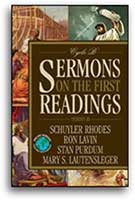SermonStudio
It's Good To Know Who Is Calling
Sermon
Sermons On The First Readings
Series II, Cycle B
When I was a boy, our family used to have a parakeet. The bird's name was "Beauty." Beauty was a bird like most. She spent her life in the cage poking at a mirror and whistling while my mom played classical music. She was quite tame, and we all loved playing with her. One special skill that she acquired, however, was whistling. In fact, she was able to perfectly copy the whistle that my dad used to call our pet dog. It was amazing. You really couldn't tell whether it was my dad or the bird whistling. Neither could the dog.


